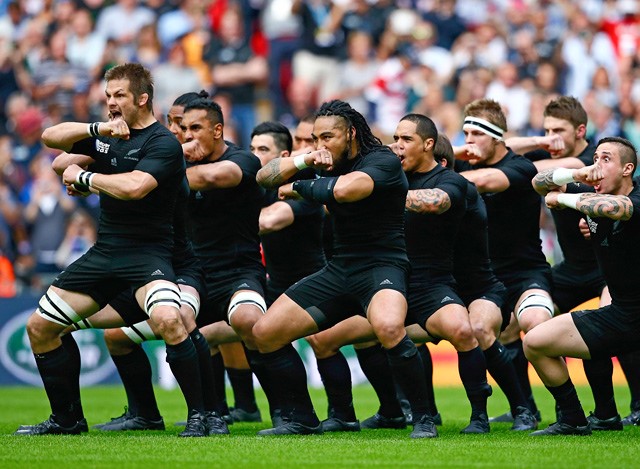

In this insightful #NexEdBlog, James Yates talks about culture and how important having the right culture is in your school.

The definition of culture is simple: The ideas, customs, and social behaviour of a particular people or society. Having a culture means having key identifiable values and a clear ethos or mission. If a culture is fully embedded, it can be felt and observed by everyone: insiders and outsiders. Many schools have ‘core values’ or a ‘mission statement’ but is it merely ticking a box or do these values under pin everything we do.? How often as teacher do you refer to what your school has along this line? It’s also about routines and habits within the school. This creates a consistent approach where the aims and goals have a clear path.
I love the quote “culture eats strategy for breakfast” and I’ve seen it happen. If all the major stakeholders who are responsible for creating the culture aren’t all going in the same direction, it doesn’t matter what you put in place; you’re going to struggle. I’ve seen things put in place to change the culture which get chewed up and spat out within days of being implemented. This was mainly due to staff as a body not persisting with it. Consistency and persistence are the key in creating what you want.
Being a big sports fan, it is easy for me to reference several teams across quite a few sports that have created a culture and embedded it in everything they do. You don’t have to be part of those teams to recognise they’ve built something based on their principles and beliefs. They are unwaivered in their approach and even if it doesn’t always get the outcome they want, they believe in what they are doing and have the mindset that eventually it will pay off and that their way is the ‘right way’ to do things.
The All Blacks are renowned over the world not just for the Haka or the colour of their shirts. They develop several elements to their culture:
Now, if that isn’t a blueprint that almost any school could or maybe should use, then I don’t know what is. They have these values running through everything they do on and off the pitch – at junior level and senior level. It is ‘what they do’ and culture is about the ‘norms’ and the repeated behaviours which create the outcomes for them.
However, not all cultures created are positive and can be difficult to change. The ‘Tuesday Club’ at Arsenal football club in the late eighties and early nighties involved regular heavy drinking sessions by Arsenal players in the 1990s. It became known as the Tuesday Club as the events occurred on Tuesday nights as Arsenal had a day off from training on Wednesdays. Merson wrote that George Graham (the manager) was aware of the sessions but ignored them as the participants always arrived for training on Thursdays. The Tuesday Club also became known for the antics of some of the participants. In 1990, Merson, Nigel Winterburn and two other Arsenal players were sent home from an Arsenal tour to Singapore due to being involved in a drinking session.
These sort of cultures develop through ignorance and lack of effective action. I’m sure George Graham had words with some of them but it didn’t have an impact. The Tuesday Club was unofficially ended by the appointment of Arsène Wenger as Arsenal manager. He portrayed alcohol negatively in order to change the culture at Arsenal and The Tuesday Club was then officially ended after Adams banned alcohol consumption in the players’ lounge at Highbury after recovering from alcoholism. Wenger created a mindset that changed the club forever. Now, he has his critics but Arsenal are often seen as how clubs should be run. They have a clear culture in the way they operate as a club and how they play the game. Some might argue this culture is limiting their ability to improve further, but it has consistently delivered results for them and they know ‘what they do’ at Arsenal.
Then you have Chelsea who have a culture of success. They do anything in their power to achieve it. They sack managers who do not deliver trophies or results and they do not accept failure form their staff. This ruthless culture is clearly identifiable but it works for them as they have won so many trophies over the last 13 years since their billionaire owner came in and created this ‘success at all costs and no excuses’ culture. Can you imagine schools showing the same lack of loyalty and ruthless streak? Would it work? Are headteachers given too much time?
The British cycling team were another group with a clear culture. The concept of marginal gains has revolutionised some sports. Could the same approach also change important areas of schools? The doctrine of marginal gains is all about small incremental improvements in any process adding up to a significant improvement when they are all added together. It is perhaps most easy to understand by considering the approach of Sir Dave Brailsford. When he became performance director of British Cycling, he set about breaking down the objective of winning races into its component parts. Brailsford believed that if it was possible to make a 1% improvement in a whole host of areas, the cumulative gains would end up being hugely significant. He embedded this in all his cyclists and it became habit and routine and we all know how well it went.
I believe that culture can take time to develop and become ‘part of the DNA’ of a school but it is worth it. It has to be consistently applied; it has to be repeated and repeated and repeated. It has to be unshakeable and withstand everything that challenges it. It must last the test of time even when it gets tough and doubts might creep in. We must keep believing and creating the ‘this is what we do here’ mentality in staff and students. As humans, we are all able to be conditioned and trained to behave and act in certain ways; that is how society exists so schools should be no different.
Right…Anyone want to be in my Sunday Club? Ermmmm…Perhaps not!
One Reply to “Can you Haka a big culture shift?”